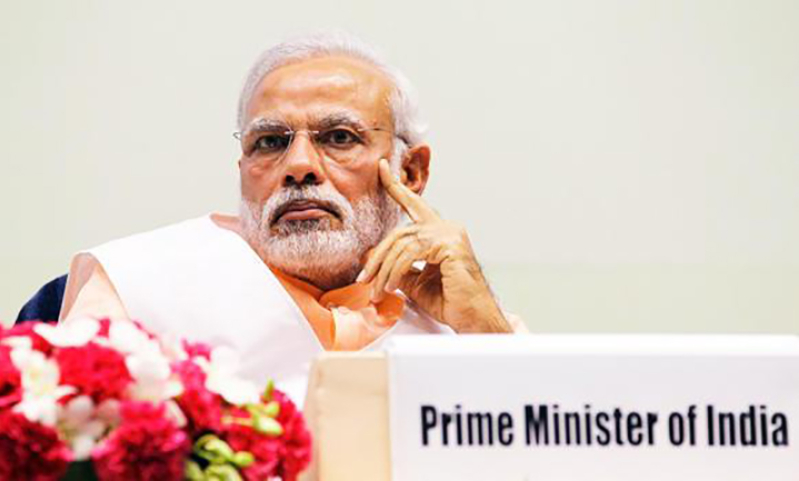
Hindu zealots with connections to the ruling Bharatiya Janata Party (BJP) have continued their attacks on Christianity in India, leaving many members of the Christian minority feeling besieged.
According to a report from Telegraph India, a mob supposedly tied to Sangh parivar offshoots vandalized a 140-year-old cathedral in Jabalpur city on Friday. Church officials denied that religious conversions were taking place at the St. Peter and Paul Cathedral, adding that it was holding meetings related to the fasting period of Lent.
"We were holding a Bible convention where around 200 tribals were present," Denzel Paul, a leader of the local Christian community, said. "Most of them had come from neighboring Mandla district."
Hindu activist Yogesh Aggarwal told Telegraph India argued that the church was practicing conversions, which is why they stormed the place.
"We went to the church after learning that a conversion ceremony was being held in the name of a Bible convention," Aggarwal said. "Otherwise, why had so many tribals been called?"
Telegraph India reported that Prime Minister Narendra Modi pledged to protect everyone's religious freedoms in his country. Under India's legal system, conversions are allowed as long as they are not "brought about through coercion, influence or allurement."
Despite the promise made my Modi, Rahul Bedi of the Irish Times reported that the prime minister has been slow to condemn attacks by fanatical Hindus. That's because Modi's party, the BJP, has supported a campaign known as "ghar wapsi" or "homecoming," which is designed to convert everyone in India back to Hinduism regardless of their beliefs.
"Though the attacks are by fringe elements of Hindu organizations, they're part of the BJP," former MP and provincial governor Margret Alva said.
Bedi reported that senior BJP leader Subramaninam Swamy, a former economics professor at Harvard University, controversially declared that gods only lived in Hindu temples. Swamy argued that both churches and mosques could be destroyed at any time because they were only "mere buildings for offering prayers."
"The BJP and its numerous affiliates frequently state that India can only be unified via Hindutva or Hindu hegemony and that Muslims and Christians need to heed this dogma carefully," Bedi wrote.
Julio Ribeiro, a highly respected police officer in India who took on Sikh terrorists in the 1980s, told the Irish Times that he was "reduced to a stranger in my own country" thanks to his Christian faith.
"I feel I am on a hit list," Ribeiro said. "I was born in this country and so were my ancestors some 5,000 years ago."
The Irish Times reported that despite the persecution, most Indians noted that Christians punched above their weight. Despite being a small part of the country's population, they hold important roles in Indian society.
"They run the best educational institutions, hospitals and hospices for the terminally ill and homes for the poor and destitute, all patronized largely by Hindus," Bedi wrote.
However, violence against Christians has continued despite their positive contributions to society thanks to the current BJP-run government in India.
"It is tragic that these (Hindu) extremists have been emboldened beyond permissible limits by an atmosphere of hate and distrust with consequences that must be avoided at all costs," Ribeiro said.
According to Bedi, some 827 million Hindus comprise around 81 percent of the country's population of over 1.25 billion, while 24 million Christians make up 2.3 percent of India's population. The remainder is split among Muslims, Sikhs, Buddhists and other religious minorities.







